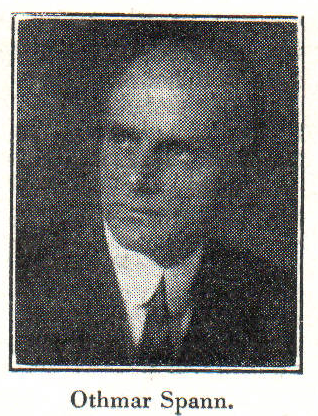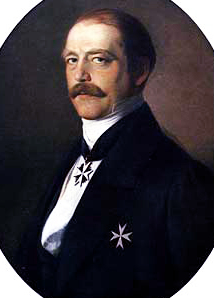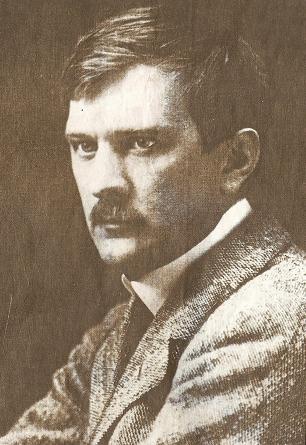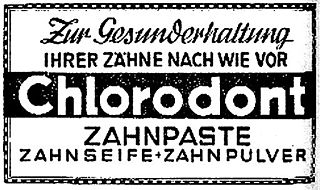Ottomar is a masculine given name of Germanic origin. It is derived from Audamar, a name comprised from the elements *aud, meaning wealth, and *mari, meaning fame. Another variant of the name is Othmar.
The name may refer fo:

Othmar Hermann Ammann was a Swiss-American civil engineer whose bridge designs include the George Washington Bridge, Verrazzano-Narrows Bridge, and Bayonne Bridge. He also directed the planning and construction of the Lincoln Tunnel.
Othmar, also spelled Otmar or Ottmar, is a masculine German given name, derived from the Germanic name Audamar, from the elements aud "wealth, prosperity" and mar "fame".

Othmar Spann was a conservative Austrian philosopher, sociologist and economist. His radical anti-liberal and anti-socialist views, based on early 19th century Romantic ideas expressed by Adam Müller et al. and popularized in his books and lecture courses, helped antagonise political factions in Austria during the interwar years.

Otto is a masculine German given name and a surname. It originates as an Old High German short form of Germanic names beginning in aud-, an element meaning "wealth, prosperity".

Arthur Wilhelm Ernst Victor Moeller van den Bruck was a German cultural historian, philosopher and writer best known for his controversial 1923 book Das Dritte Reich, which promoted German nationalism and strongly influenced the Conservative Revolutionary movement and then the Nazi Party, despite his open opposition and numerous criticisms of Adolf Hitler.
Rosenzweig, or Rosensweig is a German surname meaning "rose twig or branch" and may refer to:
Kluge is a German-derived surname. In German, capitalizing, and adding a final -e to, the adjective klug, creates a noun meaning "clever one". Although the adjective kluge is a feminine form, the noun Kluge can be feminine, neuter or masculine.
Beata or Beate is a female given name or Portuguese surname that occurs in several cultures and languages, including Italian, German, Polish, and Swedish, and which is derived from the Latin beatus, meaning "blessed". Variants include Bea, Beade and Beáta. The name may refer to:
Behr is a given name and surname that derives from the German Bär (bear). Older forms of the name, Bela and Belo, occur in the Memorbuch. The diminutive forms Baeril(Berel) and Baerush(Berush) are used among Polish and Russian Jews.

Kurt is a male given name of Germanic or Turkish origin. Kurt or Curt originated as short forms of the Germanic Conrad, depending on geographical usage, with meanings including counselor or advisor.

Tala Birell was a Romanian-born stage and film actress.

The von Minutoli family is a German noble family, originally came from Lucca or Naples and spread over into Switzerland during the 17th century. Members of the family were awarded with the title of Freiherr and held significant military positions within the Kingdom of Prussia. Over the time, two branches of the family were formed, the Minutoli line and the line of Minutoli-Wolbeck, formed by legitimate male-line descendants of Alexander von Minutoli (1806-1887), son of Heinrich Menu von Minutoli and his uncle, Julius Rudolph Ottomar Freiherr von Minutoli.
Rauscher is a German surname. Notable people with the surname include:
Anschütz is a German surname, which may also appear as Anschutz, without the umlaut. It may refer to:
Rosenbach is a surname, and may refer to:
Kühn is a surname of German origin, derived from the Old German name Conrad. It may refer to one of the following people:

Gustav Ottomar Heinsius von Mayenburg was a German pharmacist. He invented the Clorodont toothpaste for the German market.
Mayenburg is a surname. Notable people with the surname include:
Zeidler is a German occupational surname meaning "Beekeeper". Notable people with the surname include:
Kuno is an Estonian and German male given name.